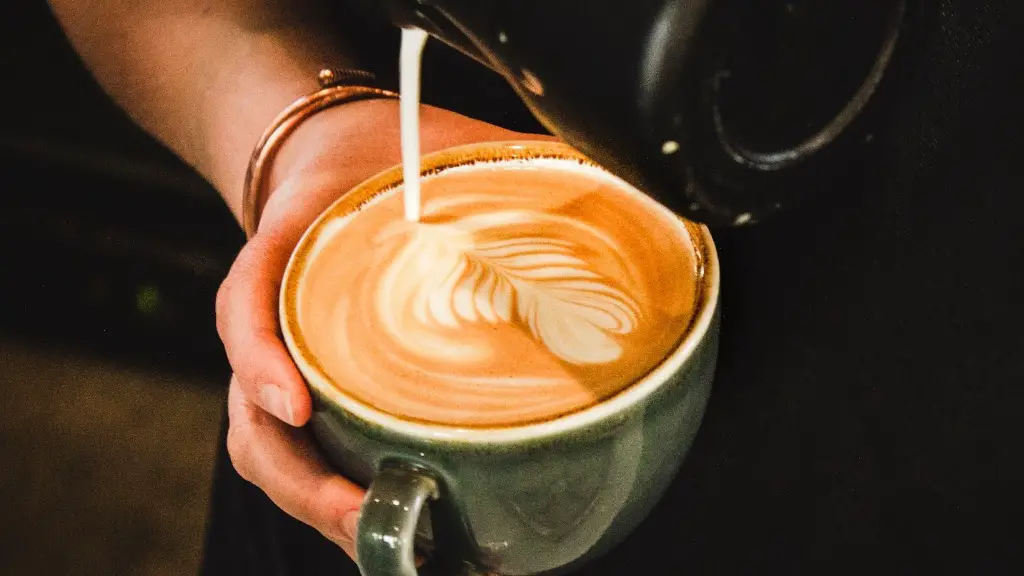Coffee is one of the most popular beverages in the world. It’s no surprise that many people are looking for ways to turn their morning cup of joe into an effective weight loss tool.
The truth is, drinking coffee can actually help you lose weight. Caffeine has been shown to increase metabolism, reduce appetite, and improve exercise performance.
But it’s important to note that coffee alone won’t make you lose weight. To get the most out of your coffee-drinking habit, it should be part of an overall healthy lifestyle that includes a balanced diet and regular physical activity.You need to combine your coffee consumption with a calorie-controlled diet and exercise plan to see weight loss results.
Disadvantages of Drinking Coffee
Coffee is a popular beverage around the world, but it does come with some potential drawbacks. Caffeine, the active ingredient in coffee, can be addictive and can lead to jitteriness and dehydration. Too much caffeine can also cause headaches, insomnia, and rapid heart rate. Even moderate coffee consumption may cause issues such as indigestion and heartburn. Coffee also contains high levels of acidity that can damage tooth enamel over time. Finally, while it is sometimes claimed that drinking coffee can help with weight loss, this is not necessarily true: because coffee is calorie-free, any weight loss from drinking it is likely to be very minimal.
Coffee and Weight Loss
Coffee can be a useful tool in a weight loss plan. It can boost your metabolism and help you feel more energized during the day. Caffeine also has a mild appetite suppressant effect, which can help reduce cravings for unhealthy foods. However, it’s important to note that coffee alone will not lead to weight loss – it should always be used as part of an overall healthy lifestyle.
In addition to helping with weight loss, drinking coffee can improve focus and alertness, making it easier to stay on track with your diet and exercise plan. Coffee is also rich in antioxidants, which are beneficial for overall health.
It’s important to remember that while coffee can be part of a healthy lifestyle, too much caffeine can have negative effects such as increased blood pressure and an increased heart rate. Keep in mind that adding sugar or creamers to your coffee will increase the calorie content significantly. As long as you keep your coffee intake moderate and choose healthier alternatives, it can be a great way to boost your weight loss efforts!
Does the Type of Coffee Matter?
Coffee is one of the most popular drinks in the world, and it can have a variety of effects on weight loss. The type of coffee you choose to drink can make a difference in how your body responds to it. Different types of coffee beans contain different levels of caffeine and other compounds, which can affect how quickly you burn calories and how long you stay energized. Some studies have shown that drinking dark roast coffee may be more effective for weight loss than lighter roasts. Additionally, some coffees may contain more antioxidants than others, which could help to reduce inflammation and improve overall health. It is important to be mindful of what type of coffee you are drinking to maximize its benefits.
When it comes to drinking coffee for weight loss, moderation is key. Drinking too much caffeine can lead to jitteriness and dehydration, which can hinder your ability to shed pounds. Additionally, adding unhealthy syrups or creams to your coffee can add excess calories that could add up over time. Stick with black coffee or a small amount of low-fat milk if looking to lose weight through drinking coffee.
Can Drinking Coffee Make You Lose Weight?
Coffee is a popular choice for those looking to lose weight. Caffeine, the active ingredient in coffee, is a stimulant that can help increase your body’s metabolic rate and help you burn more calories. However, it is important to note that drinking coffee alone will not lead to significant weight loss – it should be combined with a healthy diet and regular exercise.
The recommended amount of caffeine for weight loss varies based on individual body weight and metabolism. Generally speaking, healthy adults should not exceed 400 mg of caffeine per day. This equates to approximately four 8-ounce cups of coffee.
It is important to remember that drinking too much coffee can cause side effects such as insomnia, restlessness, irritability, and rapid heart beat. Therefore, it is best to consult with your doctor about the right amount of caffeine consumption for your individual needs before attempting to use coffee for weight loss.
Maximizing Weight Loss with Coffee
Coffee can be an effective tool to aid in losing weight, when incorporated into a well-rounded diet and exercise plan. Not only does coffee provide a burst of energy, it also increases metabolism, helping the body to burn more calories throughout the day. To maximize weight-loss benefits from drinking coffee, there are several tips to consider.
First and foremost, opt for black coffee or a low-calorie alternative such as almond milk or oat milk. While adding flavorings like sugar and cream may make coffee more enjoyable, they can also add extra calories that could sabotage weight loss efforts. Additionally, watch caffeine intake—too much can lead to jitters and insomnia.
It is important to note that while drinking coffee can help with weight loss, it should not be viewed as a “magic bullet” or substitute for proper nutrition and physical activity. Coffee should be used in addition to eating nutritious meals and getting regular exercise for optimal results.
Finally, set realistic goals and focus on making sustainable lifestyle changes. While quick fixes may seem tempting, gradually transitioning into healthier habits is the key to long-term success in achieving desired results.
Decaffeinated Coffee – Is it an Option?
Decaffeinated coffee is an option for those who are looking to reduce their caffeine intake. It still contains some caffeine, but it is much lower than regular coffee. It also has the same taste and aroma, so it can be used in place of regular coffee in many recipes. Decaffeinated coffee may also have some health benefits, including weight loss. Studies have shown that drinking coffee can help regulate blood sugar levels, improve metabolism and even promote thermogenesis, which helps the body burn fat. Additionally, coffee can help reduce hunger cravings and provide an energy boost to help with exercise and physical activity.
However, it’s important to note that decaffeinated coffee should not be viewed as a miracle weight loss solution. While drinking decaffeinated coffee may offer some benefits in terms of weight loss, other lifestyle changes such as a healthy diet and regular exercise are necessary for long-term results. Additionally, drinking too much decaffeinated coffee can lead to side effects such as headaches and insomnia.
Overall, decaffeinated coffee is a good option for those looking to reduce their caffeine intake while still enjoying the taste of their favorite beverage. It may also offer some health benefits when consumed in moderation. However, it should not be relied upon as a weight loss solution on its own and should instead be used in combination with other healthy lifestyle choices.
To Sum It All Up
In conclusion, drinking coffee can be beneficial for weight loss in some cases. Caffeine has been shown to boost metabolism and increase fat burning. Additionally, coffee can also help reduce food cravings, which can lead to consuming fewer calories overall. However, it is important to note that coffee should be consumed in moderation and that the effects of drinking coffee on weight loss may vary from person to person.
Ultimately, coffee can be a great addition to your diet if you’re trying to lose weight, as long as it is not accompanied by added sugars and creamers. A balanced diet and regular exercise are still important for achieving optimal results.





